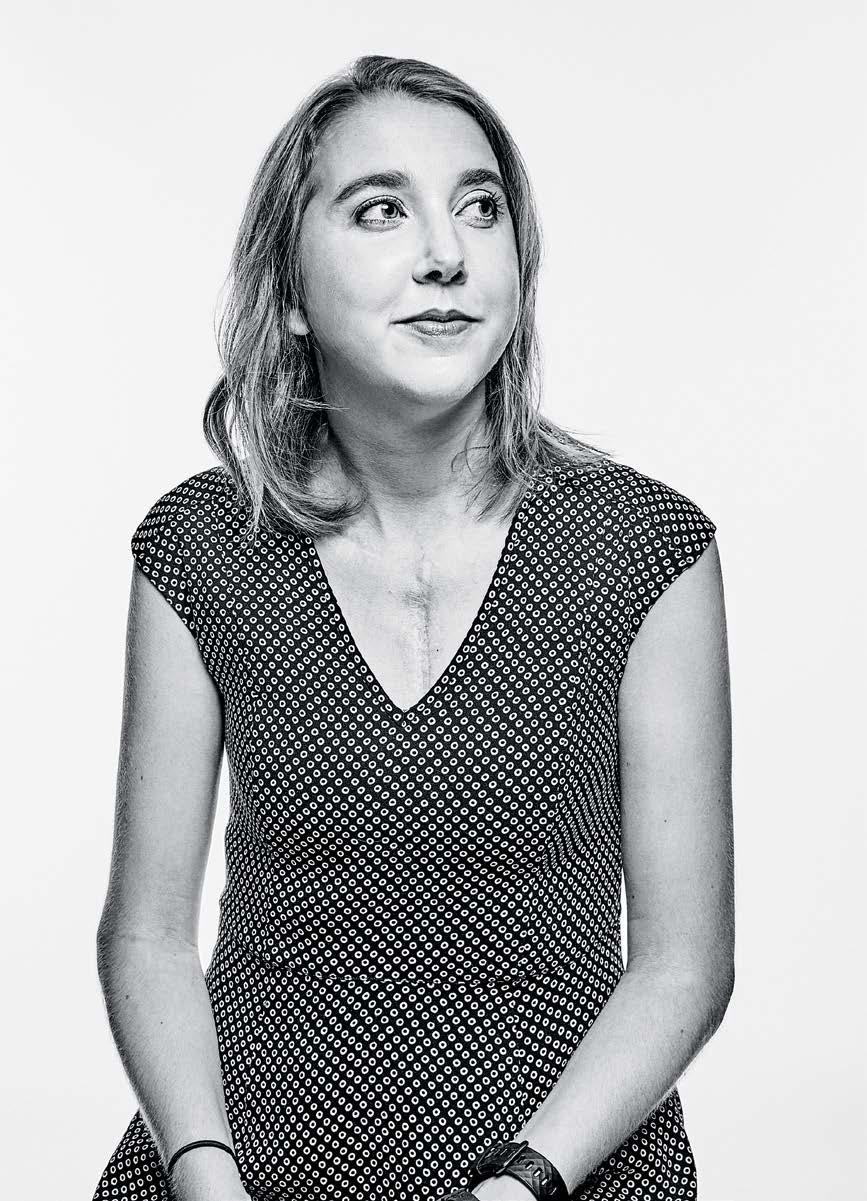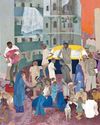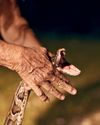
DARU SMITH WAS talking to his doctor and sister one day in December 2018 when he began to die. He saw their forms grow dim, a dark curtain coming down on them and himself in his fluorescent-lit hospital room at University of Chicago Medicine hospital. Then the 29-year-old was above it all, looking into a hole in the ground where a torrent of water was swirling like a giant draining sink.
And then he was in a hallway. At the end of it glowed a white light. He felt at peace. No more heart palpitations, no flutters, no aches. He saw pictures on a wall. Scenes from his life. His son being born. It felt good, the light. Until Daru realized: This is what happens when you die. He turned around and began to run. The light pulled him. I gotta fight, he said to himself.
Daru had been sick. A few weeks earlier, he'd gone to the emergency room with a cold he couldn't shake. But tests showed it was much more than that. Daru was in cardiogenic shock, a condition in which the heart can't pump enough blood to meet the body's needs. He also had something called sarcoidosis, a rare autoimmune disease that can cause the body to overproduce certain cells that all but shut down organs-in Daru's case, the heart, liver and kidneys.
That meant Daru needed all three vital organs replaced, a procedure so complex and risky that only 15 had been performed in the US at that point. And he would need the rarest of donors, one with three healthy organs compatible with Daru's blood type and strong enough to support his six-foot-one-inch body.
Still unconscious, Daru continued to fight the light. Then his eyes fluttered and opened. "Hey, where'd you go?" Daru's cardiologist, Bryan Smith, said. "Thought we lost you for a second."
SARAH MCPHARLIN SAT in a spare room at UChicago Medicine, waiting to plead for her life. She was there to meet with the centre's transplant evaluation team.
This story is from the {{IssueName}} edition of {{MagazineName}}.
Start your 7-day Magzter GOLD free trial to access thousands of curated premium stories, and 9,000+ magazines and newspapers.
Already a subscriber ? Sign In
This story is from the {{IssueName}} edition of {{MagazineName}}.
Start your 7-day Magzter GOLD free trial to access thousands of curated premium stories, and 9,000+ magazines and newspapers.
Already a subscriber? Sign In

BOOKS
Books review

STUDIO - Off Lamington Road by Gieve Patel
Oil on Canvas, 54 x 88 in

NEWS FROM THE WORLD OF MEDICINE
FOODS THAT FIGHT DEMENTIA

TO HELL AND BACK
The Darvaza crater in Turkmenistan is known as the Gates of Hell. I stood on its edge - and lived to tell the tale

THE SNAKE CHARMERS
Invasive Burmese pythons are squeezing the life out of Florida's vast Everglades. An unlikely sisterhood is taking them on

Sisterhood to Last a Lifetime
These college pals teach a master class in how to maintain a friendship for 50-plus years

...TO DIE ON A HOCKEY RINK
ONE MINUTE I WAS PLAYING IN MY BEER LEAGUE, THE NEXT I WAS IN THE HOSPITAL

Just Sit Tight
Broken, battered and trapped in a ravine for days, I desperate driver wonders, \"Will anyone find me?\"

Allow Me to Mansplain...
If there's one thing we know, it's this: We're a nation of know-it-alls

THE BITTER TRUTH ABOUT SUGAR (AND SUGAR SUBSTITUTES!)
It's no secret that we have a serious addiction. Here's how to cut back on the sweet stuff, once and for all.